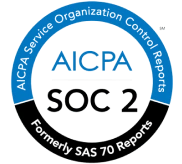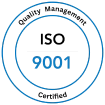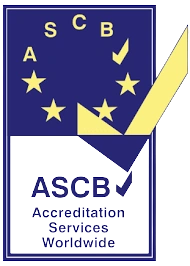Table of Content
Introduction
Performance review questions are more than just a formality; they're an opportunity to foster growth and development within an organisation. But how can you ensure that your evaluations are meaningful and effective? It all comes down to the quality, meaning, and expected output of the questions you ask.
So read the article ahead to explore ten performance review questions that will not only capture your team members' attention but also lead to purposeful evaluation. In fact, you can streamline the process of asking and reviewing these questions on the future-proof HRMS software in India. uKnowva is already one of those tools to consider. For more information, keep scrolling and reading.
Want to skip the post?

Discover 10 Performance Review Questions Below
- Setting the Stage: Goal Alignment
Key Point: Ensuring that team members understand and align with organisational goals.
In the fast-paced world of business, aligning individual goals with the larger organisational mission is crucial. Ask questions like, "How do you see your role contributing to the overall goals of the company?" and "What steps have you taken to align your work with our mission?"
- Assessing Achievements and Challenges
Key Point: Acknowledging accomplishments and addressing hurdles.
Acknowledge achievements with questions like, "What accomplishments are you most proud of this year?" Additionally, delve into challenges with inquiries like, "What obstacles have you faced, and how have you worked to overcome them?"
- Communication and Collaboration Skills
Key Point: Evaluating interpersonal abilities.
Effective communication and collaboration are vital in any team. Ask, "How do you ensure that your ideas are effectively conveyed to the team?" and "Can you share an example in your mind or related to your experience of a successful collaborative effort?"
- Adaptability and Problem-Solving
Key Point: Assessing flexibility and critical thinking.
In a dynamic work environment, adaptability is key. Ask, "Describe a situation where you had to adapt quickly to change." Additionally, explore problem-solving skills with questions like, "Can you share an example of a complex issue you resolved?"
- Time Management and Prioritization
Key Point: Evaluating organisational skills.
Time management is a cornerstone of productivity. Inquire, "How do you prioritise tasks to meet deadlines?" and "Can you provide an example of a time when you effectively manage your workload?"
- Feedback Reception and Implementation
Key Point: Assessing openness to feedback.
Receiving and implementing feedback is crucial for growth. Ask, "How do you typically respond to constructive criticism?" and "Share an instance where feedback positively impacted your performance."
- Professional Development Aspirations
Key Point: Encouraging growth and learning.
Promote a culture of growth by asking, "What skills or knowledge do you hope to develop in the coming year?" and "How can the company support your professional development goals?"
- Leadership and Team Contribution
Key Point: Recognizing leadership potential.
For those in leadership roles, inquire about their impact on the team. Ask, "How have you supported and motivated your team members?" and "Share an example of a successful team achievement under your leadership."
- Ethical Decision-Making
Key Point: Ensuring integrity in actions.
Ethical decision-making is essential for trust and credibility. Ask, "Can you provide an example of a situation where you had to make an ethical decision?" and "How do you ensure your actions align with our company's values?"
- Work-Life Balance and Well-being
Key Point: Prioritising employee well-being.
Acknowledge the importance of work-life balance by asking, "How do you maintain a healthy balance between work and personal life?" and "What steps do you take to ensure your well-being in a demanding work environment?"
Conclusion: Fostering Growth Through Review
Incorporating these purposeful performance review questions into your evaluation process can lead to a more engaged, motivated, and productive team. Remember, it's not just about assessing performance; it's about guiding individuals towards growth and success. So start the journey of asking the right questions to build dream teams with uKnowva HRMS today.
FAQs
Q1: How often should performance reviews be conducted?
A: Ideally, performance reviews should be conducted annually. However, regular check-ins and feedback sessions throughout the year are highly beneficial.
Q2: What if an employee struggles to answer a review question?
A: Encourage honesty and provide support. Use it as an opportunity for constructive discussion and development planning.
Q3: Can performance reviews be conducted remotely?
A: Absolutely. With the right technology and communication tools, remote performance reviews can be just as effective as in-person ones.
Q4: What if a team member disagrees with their performance assessment?
A: Encourage open dialogue. Listen to their perspective and work together to find a resolution or a plan for improvement.
Q5: How can I ensure that performance reviews remain confidential?
A: Clearly communicate the confidentiality of the process and ensure that feedback is shared only with those who have a legitimate need to know.












